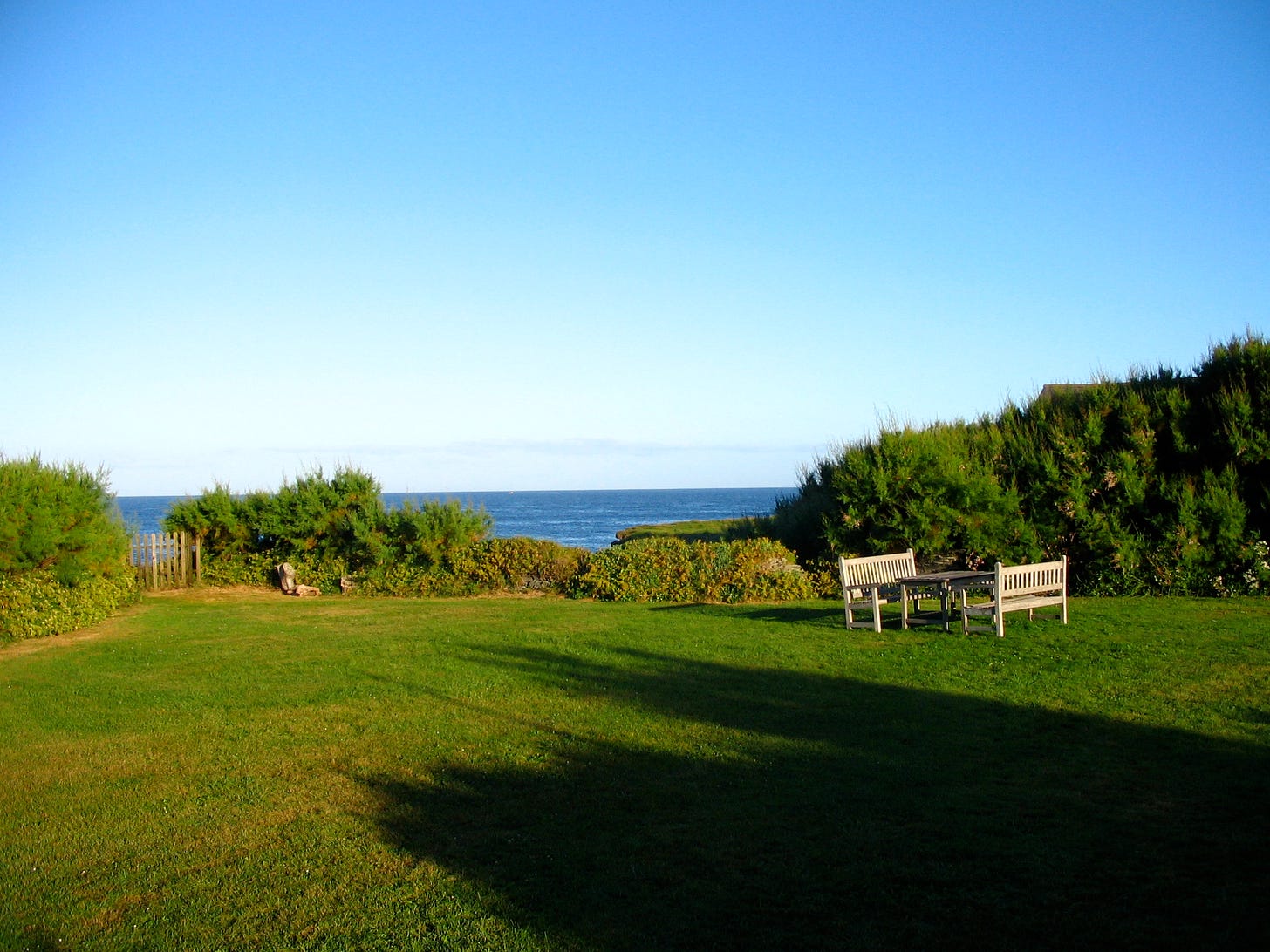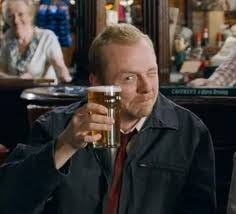Behind the Words: University Challenge
As the subtitle very strongly suggests, this was meant to be the opening chapter of a longer work that never happened. I wrote the first draft of this sometime around 2003 or 2004, I think, and worked on it at various points in the years since, never happy with it. I’m still not, but I thought I’d share it anyway.
The spark for this is the location, a house on the beach in Cornwall which actually exists. It belongs to the family of an old friend of mine and every summer a group of us would travel down and stay there for a week, swimming, relaxing, but mostly drinking and eating. I haven’t been since 2007, the last time I was in the UK at the appropriate time of year, and every year since I’ve looked on with undisguised jealousy.
I wanted to set a story there. In my head was Virginia Woolf’s, To The Lighthouse, I book I loved and haven’t reread in years (note to self). I wanted to write something that had that sense of place, that was anchored so fiercely in a specific location, and sitting at the outside table in Cornwall (that table in the picture), that seemed the perfect place.
The three guys in this story have no connection to me or any of my friends. The last thing I wanted to do was a thinly veiled version of our own experiences. Little details drip in (I do know a game developer, a do know people who work in academia, people in bands etc) but Patrick, Cammy and Jeff are entirely fictional.
The interesting thing about it for me, besides the nostalgia the location brings up, is that this is a perfect example of one of my biggest failings as a writer. I can’t really do short stories. This isn’t a short story. It has the length of a short story, and I tried to make it into a short story when I realised that the novel was going nowhere, but as you can see, it isn’t a short story. It is a series of beginnings.
There’s a quote by Michael Holquist in his introduction to Bakhtin’s The Dialogic Imagination which I’ve adopted to describe my own creativity:
It may be said Jakobson works with poetry because he has a Pushkinian love of order; Bakhtin, on the contrary, loves novels because he is a baggy monster.
A baggy monster. Yes, my instinct as a writer is towards the monstrously baggy. The thing I love most—and it’s very clear in this story—is unpacking, is setting up problems, asking questions that I (should) go on to explore. What I am not good at is being concise, summing up, encapsulating, finishing. Certainly not in prose, anyway. I wish I could. I love a short story, I’ve spend decades trying to write them, but they never quite work. My best works are long and baggy, though even then if you’re looking for closure, sorry.
You can see that here. I set up Patrick’s central dilemma, Cammy’s tragic flaw, and Jeff’s trajectory (the game he speaks of is obviously a sledghammer-subtle metaphor for the downward spiral of existential crisis all three are going to face in act two). And then? Well, then Cammy plays them a song about friendship and nostalgia, they have a drink, have a smoke, and watch the sun set over the sea. Lovely.
That’s not a narrative arc. Not even close. There’s no character development, just a bit of backstory and a hint of future progress. It’s a sketch, a location, some world building, and an atmosphere. That’s why it’s the opening chapter of an abandoned novel and not a short story: there is no story, just the set up to a story. That’s what I do, again and again and again, with short stories. I set it up and then wander off.
The title, incidentally, comes from a much longer riff about them being a team on the University Challenge TV quiz show, and whatever happened to the fourth member, Kate. Still don’t know. I never got that far.
I never threw this out because I never do, but I also never sent it out to be published because I knew it wasn’t worth it. I wasn’t able to understand exactly what was wrong with it until I’d worked as an editor for a while and honed my analysing skills, and had enough distance from it to be objective, but I always knew it wasn’t working. Now I know it never will. The novel it could have become doesn’t interest me now. I’m 43, I don’t want to—and probably couldn’t anymore—write the mid-twenties existential comedy this was clearly heading for, and that’s why I share it here. It is one of my fallen leaves, a step on the path towards being a better writer, and something that I can look at fondly, not least for the memories of Cornwall that it brings back. Indulgent and nostalgic, perhaps, but I turn 44 next week and that goes with the territory.



